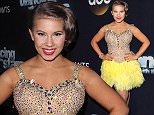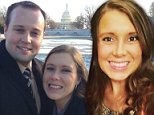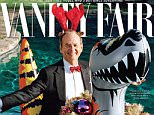Oscar-winning Chariots of Fire writer Colin Welland who told Hollywood 'The British are coming!' dies aged 81 after long battle with Alzheimer's
- Colin Welland had been suffering from Alzheimer's for several years
- He died peacefully in his sleep, according to a statement from his family
- After his Oscar win he famously announced 'The British are coming!'
- He acted in everything from Kes to Z Cars, gaining fame around the world
Oscar-winning writer and actor Colin Welland has died at 81 after suffering from Alzheimer's.
He won his Academy Award for Chariots of Fire in 1982, memorably using his acceptance speech to declare: 'The British are coming' as he waved the statuette in the air.
Welland, who had suffered from Alzheimer's for several years, died on Monday night, his family announced yesterday.
Scroll down for video

Colin Welland poses with his Academy Award for Best Original Screenplay for Chariots of Fire in 1982

The celebrated writer and actor (pictured in 1989) was born in Leigh, Lancashire and was a father to four

In 1971 Welland won a BAFTA for Best Supporting Actor for his role as an English schoolteacher in Kes
In a statement, they said: 'Colin will be desperately missed by his family and friends. Alzheimer's is a cruel illness and there have been difficult times but in the end Colin died peacefully in his sleep.
'We are proud of Colin's many achievements but most of all he will be missed as a loving and generous friend, husband, father and granddad.'
Born in Lancashire in 1934 as Colin Williams, Welland thought of Liverpool as his home town. A household name by the 1970s, he was known for his role as Mr Farthing in Ken Loach's Kes in 1969 for which he won the best supporting actor Bafta.
On the small screen Welland played PC Graham in police serial Z Cars. He had a role in gang movie Villain in 1971 and played a reverend in the controversial Straw Dogs the same year.
His first foray into writing for film was the 1979 movie Yanks which was set during the Second World War and starred Richard Gere and Vanessa Redgrave.
But it was his work on the much-loved 1981 sporting classic Chariots Of Fire which won him the Oscar for best original screenplay. It tells the true story of Eric Liddell and Harold Abrahams, who won gold at the 1924 Olympics despite great personal obstacles.


Colin Welland, pictured in 1998 (left) and in his role as PC David Graham in the BBC series Z Cars (right)

By the time he had won his Academy Award Welland was known in Britain for his TV roles (pictured: Cowboys)
Liddell, a devoutly religious man, would not run his qualifying heat because it fell on a Sunday, while Abrahams, who was Jewish, faced anti-Semitism.
The film won four Oscars, also including best picture. This prompted writer Welland to announce 'The British are coming' in his acceptance speech – a famous quotation attributed to US revolutionary Paul Revere.
More than ten years later, Welland adapted War of the Buttons for the big screen.
But working in the glamorous world of movies and TV was not always his plan. Back in 1973, in an interview on Desert Island Discs, he recalled how on his father's advice, he first became an art teacher.

Colin Welland (right) played the role of Geyser, alongside Roy Kinnear (left), in the TV comedy Cowboys
He said: 'I wanted to go on the stage, you see, but my dad had his feet firmly on the ground. He said, 'be an art teacher first – you can paint and draw, be an art teacher first, and if you don't like that, then go on to the stage'. So that's what I did.' His last appearance as an actor was in 1998 in TV mini-series Bramwell where he played Mr Barclay, and the previous year he appeared in TV hit Trial & Retribution.
The British Academy of Film and Television Arts said: 'We're deeply saddened to learn that the Bafta-winning writer and actor Colin Welland has passed away.' Actor and director David Morrissey wrote on Twitter: 'Colin Welland RIP. Such a great actor and writer. Kes is my all-time favourite film and he was so wonderful in it. So sad.'
Welland is survived by his wife Patricia, four children and six grandchildren. Last night Chariots of Fire star Nigel Havers paid tribute, saying: 'He was totally down to earth and unpretentious, a fine actor as well as a wonderful writer.

Colin Welland (pictured in the TV programme Aquarius) began his acting and writing career in the 1960s
'Many of his screenplays never made the screen but each was wonderfully well researched and written with skill and love. When he said 'the British are coming' at the Oscars, he really said it as a joke, but it has become the thing he is best known for!
'Certainly that film stands as a wonderful testament to his talent and ability. He will be greatly missed by all who knew him.'
Former Labour Party leader Neil Kinnock said in a statement: 'Colin was a bold and brilliant actor and writer who gave authenticity to everything that he did and produced beauty out of the ugliness of life.
'He'd also want to be recalled as a fine rugby league player and a true devotee of the game.'
Spiky swagger of a true northerner: BRIAN VINER on a pugnacious giant of UK cinema
The British are coming! It is 33 years since Colin Welland cemented his place in Academy Awards folklore with those four simple words, cheekily borrowed from the American revolutionary war hero Paul Revere, and delivered with a pugnacious, north-of-England swagger as out of place in the glittering surroundings of the Los Angeles concert hall as a flat cap and a ferret.
But the illustrious actor and screenwriter was never a professional northerner. Indeed, he lived for most of his adult life in South West London. He did love writing about working-class northern folk, whom he provocatively considered ‘far more communicative, far more honest’ than southerners.
Unsurprisingly, Welland was immensely proud of his Lancashire roots and of the Merseyside-set television drama Z Cars that really ignited his acting career.

Cowboys aired in the 1980s and starred Welland (front right), Roy Kinnear, David Kelly and James Wardroper
And yet for all that, as a writer, Welland was no less adept than Downton Abbey creator Julian Fellowes, say, in crafting dialogue for the tail-coated aristocracy. His screenplay for Chariots of Fire, for which he won an Oscar on that triumphant evening in 1982, captured perfectly the high-handed establishment elitism which Harold Abrahams and Eric Liddell, the brilliant athletes whose stories the film chronicled, had to overcome to win their gold medals at the 1924 Olympic Games.
The privileged lifestyle of Lord Lindsay, the foppish hurdler played by a young Nigel Havers, can hardly have been familiar to Welland, a former art teacher from Leigh, near Wigan. But he depicted beautifully, and completely plausibly, a world he did not know personally – and as a lifelong socialist doubtless rather abhorred.
On the other hand, he also mined what he did know. The producer of Chariots of Fire, David (now Lord) Puttnam, told me yesterday that Welland’s ‘sense of identity with the people he wrote about was achingly real. When Harold Abrahams speaks of the unspoken snobbery of the English upper classes towards his immigrant Jewish family, it’s Colin’s northern voice railing against the tragedy of a regional and class divide that still stunts us as a nation.’
But it was as an actor that he became famous, starting in the Sixties with his portrayal of PC Dave Graham in the police procedural Z Cars. Years later, when an interviewer prefaced a question about Z Cars with an apologetic ‘I hate to mention it, but …’ Welland was typically spiky.

Chariots of Fire told the story of two athletes in the 1924 Olympics: a Scottish Christian and English Jew
Why on earth did the man hate to mention Z Cars? Well, because he might feel as if the show had typecast him, came the hesitant reply. On the contrary, Z Cars gave him his big opportunity, explained Welland, somewhat witheringly. Moreover, he continued, it was a breeding-ground for some of Britain’s finest acting, directing and writing talent. As examples, he cited actors Nicol Williamson and Wendy Hiller, writer Alan Plater, and director Ken Loach. The clear implication was he considered himself to be of similar stature. And he really was a very fine actor, almost unnervingly good in Dennis Potter’s 1979 TV play Blue Remembered Hills, in which he played a shorts-clad schoolboy.
Welland was not known for underselling his achievements, but then they were considerable; he was a significant figure in British cinema, and was always quick to acknowledge his debt to the small screen.
His declaration that the British were coming might be the most memorable words from his short acceptance speech at the 1982 Oscars, but he also thanked British television, ‘where I learned my craft’. Welland tended to wear his pomposity with his emotions – on his sleeve. In his speech that night he singled out David Puttnam, whom he thanked ‘for having the wisdom to ask me to write it in the first place’.
But then Puttnam still acknowledges the wisdom of that decision, and added yesterday that even now, when teaching about film, he refers to an interview Welland gave, in the aftermath of Chariots of Fire winning no fewer than four Academy Awards.
‘We didn’t make the film to win Oscars,’ Welland told his rather gushing interviewer. ‘That aspect of things never crossed our minds, we just wanted to do those men justice, we wanted to make it true, and we wanted to make it good, to tell their story, and give them the film they deserved.’
He did just that. And, in his 81 years, a great deal more.
-
 Dashcam undermine's Texas woman's racial profiling claim
Dashcam undermine's Texas woman's racial profiling claim
-
 Awkward swimwear prank on Rio beach freaks out men
Awkward swimwear prank on Rio beach freaks out men
-
 Thug tries to rob performer and gets kicked in the FACE
Thug tries to rob performer and gets kicked in the FACE
-
 Out-of-control students mock and threaten forlorn teacher
Out-of-control students mock and threaten forlorn teacher
-
 Brazilian police officer kills wife shooting her 11 times
Brazilian police officer kills wife shooting her 11 times
-
 Parents shock kids by telling them they ate all their sweets
Parents shock kids by telling them they ate all their sweets
-
 Teenage girl stoned to death by Taliban for 'premarital sex'
Teenage girl stoned to death by Taliban for 'premarital sex'
-
 Black activist & GOP pundit faceoff on cops attacking girls
Black activist & GOP pundit faceoff on cops attacking girls
-
 'Blind man' tests honesty of public with money experiment
'Blind man' tests honesty of public with money experiment
-
 Meteor or aliens? Huge fireball lights up sky over Bangkok
Meteor or aliens? Huge fireball lights up sky over Bangkok
-
 Man tries to do a wheelie on motorbike in his living room
Man tries to do a wheelie on motorbike in his living room
-
 First look: GMA's interview with Robin Williams' widow
First look: GMA's interview with Robin Williams' widow
-
 EXCLUSIVE: Halle Berry's ex Dave Justice tells why he's...
EXCLUSIVE: Halle Berry's ex Dave Justice tells why he's...
-
 Texas university dean who claims she was stopped by white...
Texas university dean who claims she was stopped by white...
-
 ISIS bomber is found still alive after blowing himself in...
ISIS bomber is found still alive after blowing himself in...
-
 German official says Merkel’s open door migrant policy will...
German official says Merkel’s open door migrant policy will...
-
 They're here! First of 750 migrants arrive in tiny German...
They're here! First of 750 migrants arrive in tiny German...
-
 Revealed: What REALLY goes into your favorite foods - the...
Revealed: What REALLY goes into your favorite foods - the...
-
 'We were living a nightmare': Robin Williams' widow...
'We were living a nightmare': Robin Williams' widow...
-
 Egyptian authorities claim there is 'NO proof' doomed...
Egyptian authorities claim there is 'NO proof' doomed...
-
 Can YOU solve this high school maths problem? Students still...
Can YOU solve this high school maths problem? Students still...
-
 Can YOU spot the three climbers in this photograph?...
Can YOU spot the three climbers in this photograph?...
-
 'We were humiliated': Six black passengers claim racist...
'We were humiliated': Six black passengers claim racist...
-
 Hundreds of women locked in cages to act as human shields...
Hundreds of women locked in cages to act as human shields...


































































































































































































































































































































































